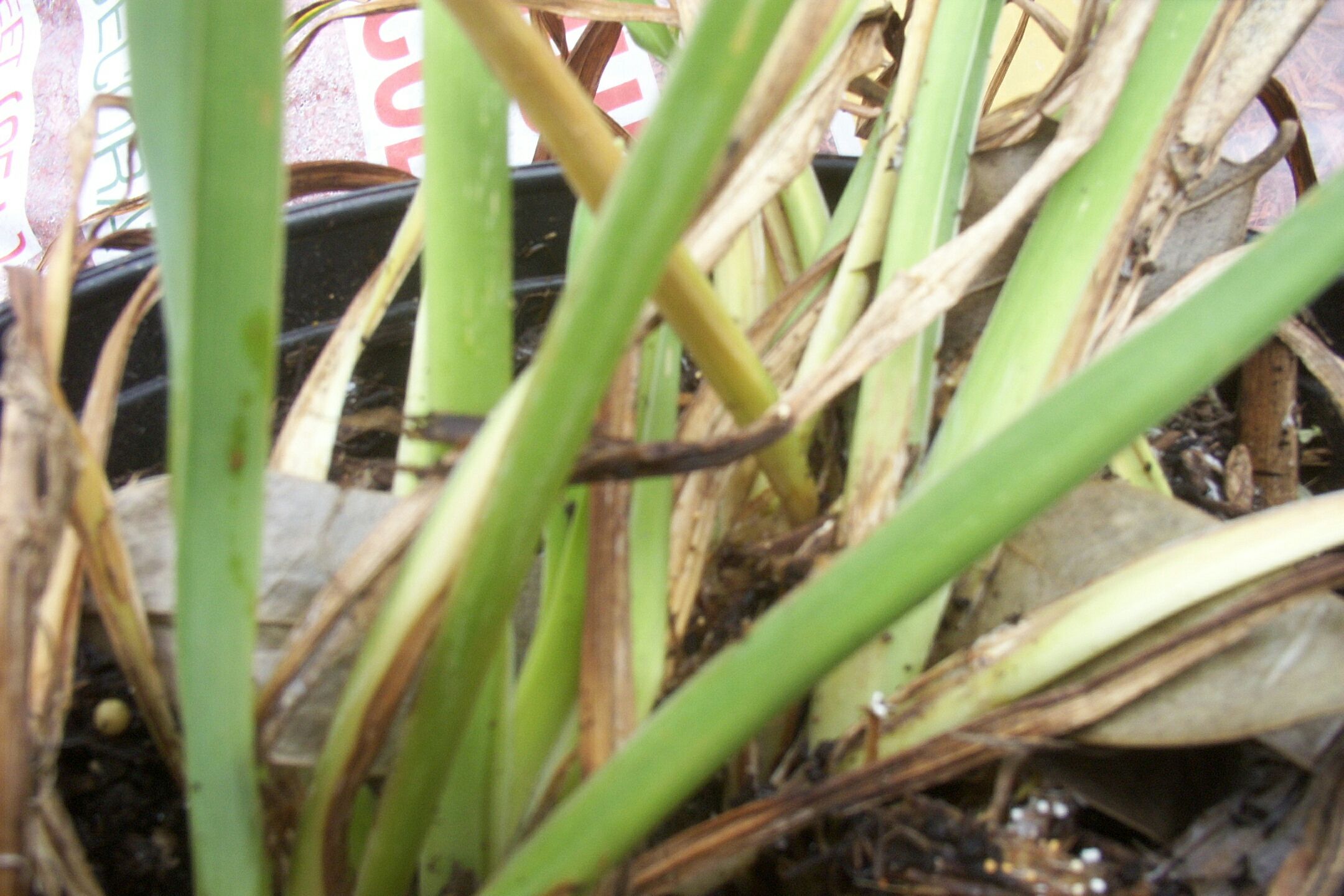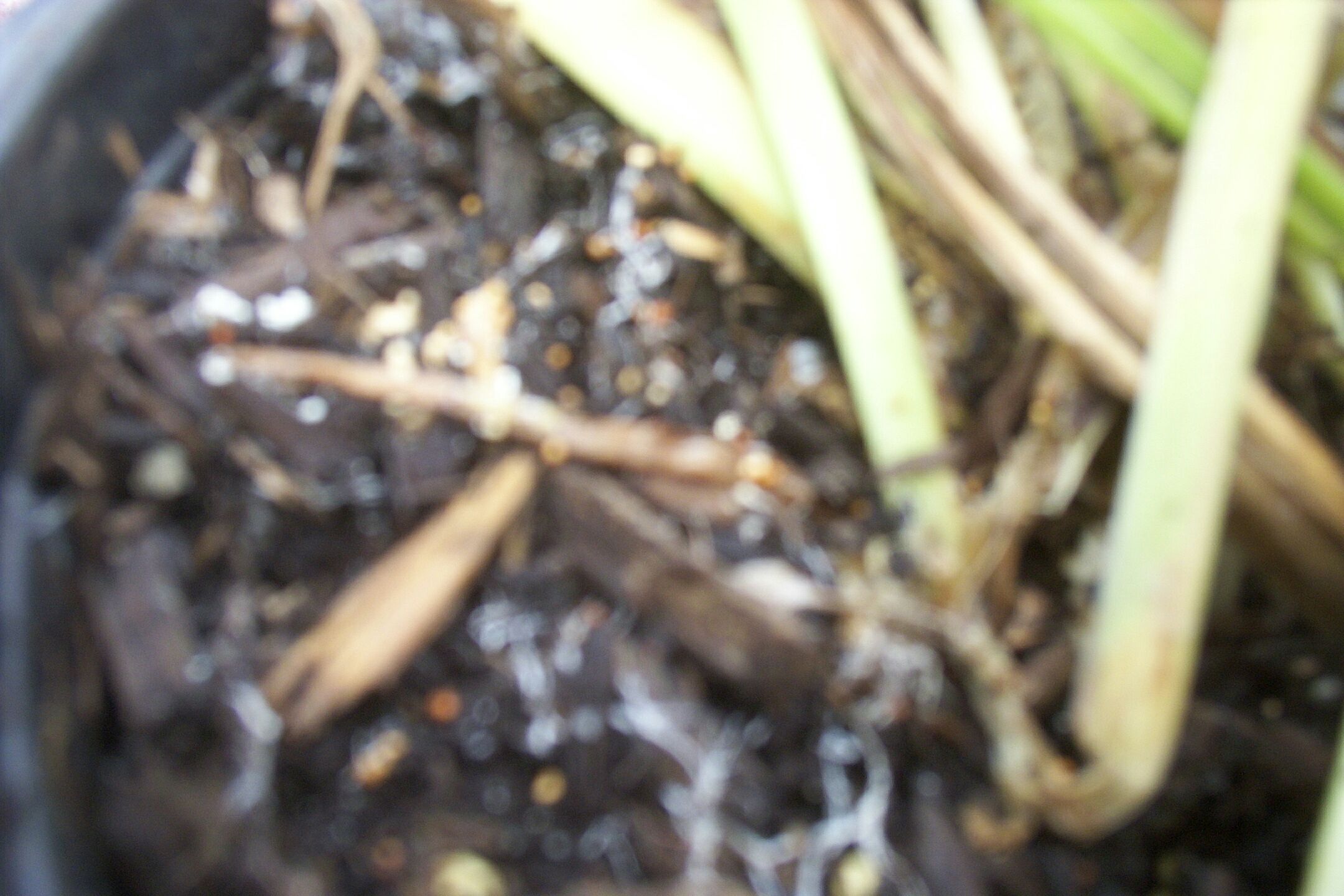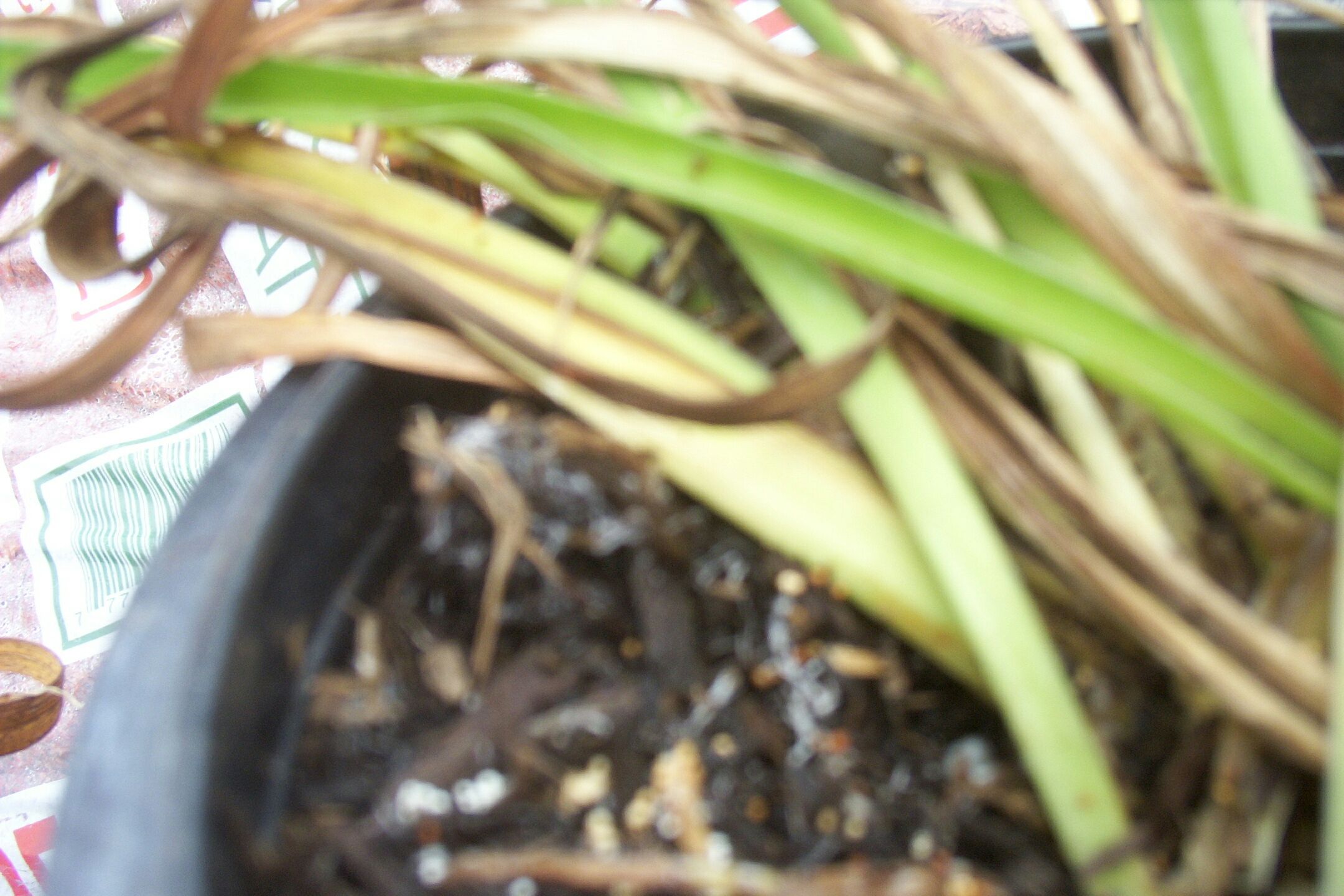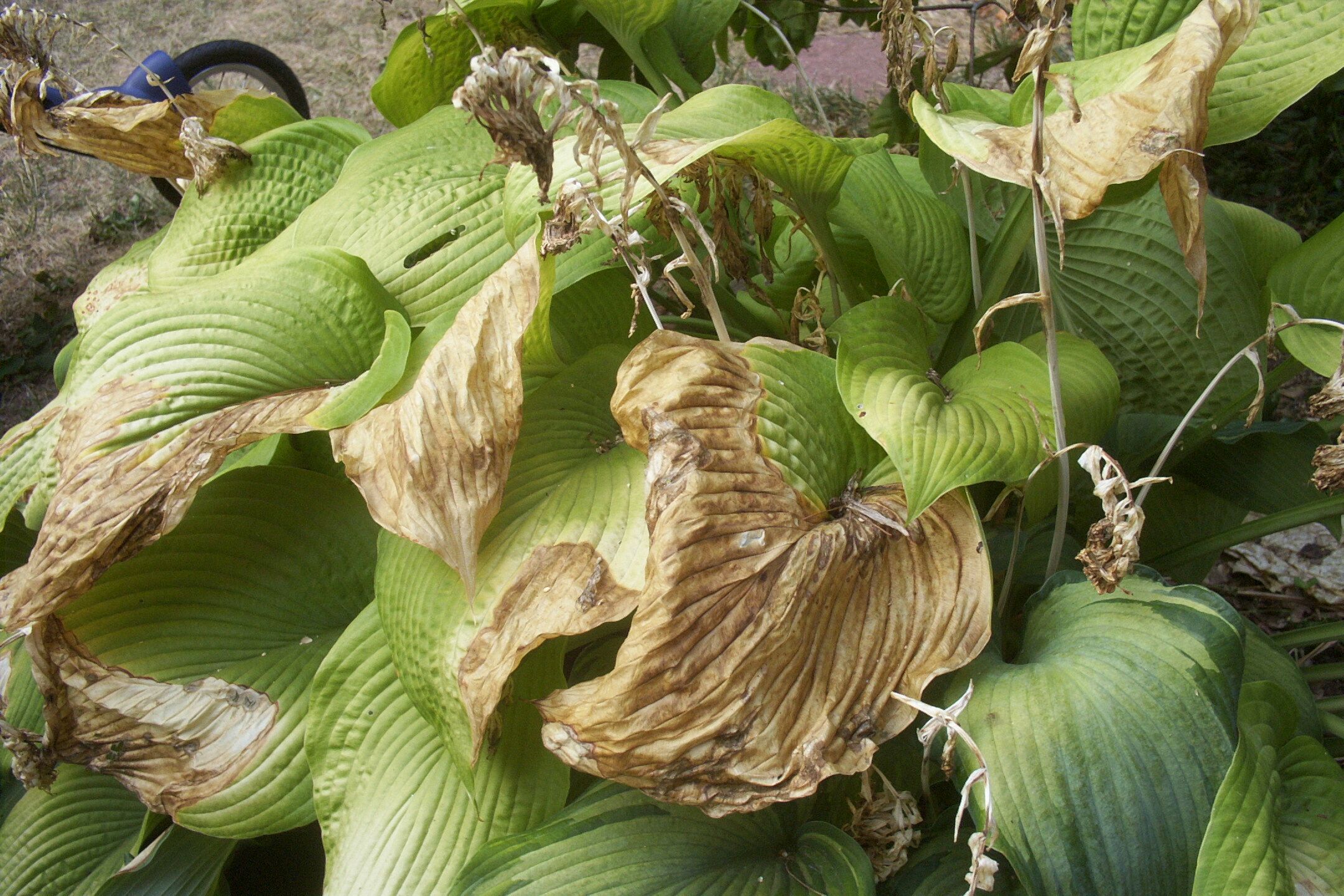


This past month of July has been hot and humid. As we went into August, we started to get our first calls on Crown Rot. This has been a major problem of southern gardens up until this point. Many hosta and other plants have been stressed by the heat and drought like conditions. Many are showing signs of this with dried brown leaves and wilted foliage. The stems of these stressed plants look fine. The leaves show most of the damage. Crown rot starts to show by the leaves turning yellowish and off-color. Closer inspection shows the stems, at ground level, looking mushy and rotted. Looking even closer, at the damaged area and the soil around it, shows white cobwebby material and small white to reddish brown granules, These are the key identifier that this is crown rot. These little mustard seed-like granules are called sclerotia and they are the way that the disease spreads and overwinters in soil and mulch. There is no spray most gardeners can use to cure this problem. If one suspects crown rot, the plant, and soil and mulch around it, should be removed and thrown out carefully and quickly. Clean all equipment used very carefully so you will limit the chance of spreading the disease to other areas of your garden. The pictures above and below can help to identify crown rot. Note the small red sclerotia and the white mat of fungus, sorry for the blurred picture but you should be able to get the idea until I can get some better pictures taken. The bottom picture shows hosta with drought damage. The leaves will be damaged on edges but the stems should look healthy. With Crown Rot the leaves may be off color and the stems, esp. at soil level, will appear rotted and soft. Please for more information (and maybe better pictures), try the following links-
Crown Rot of Hosta: Revenge of the South -
Crown Rot: A Serious Disease of Hosta and Other Ornamentals- this is a publication that you you may need Adobe Acrobat to read, very informative
-.


